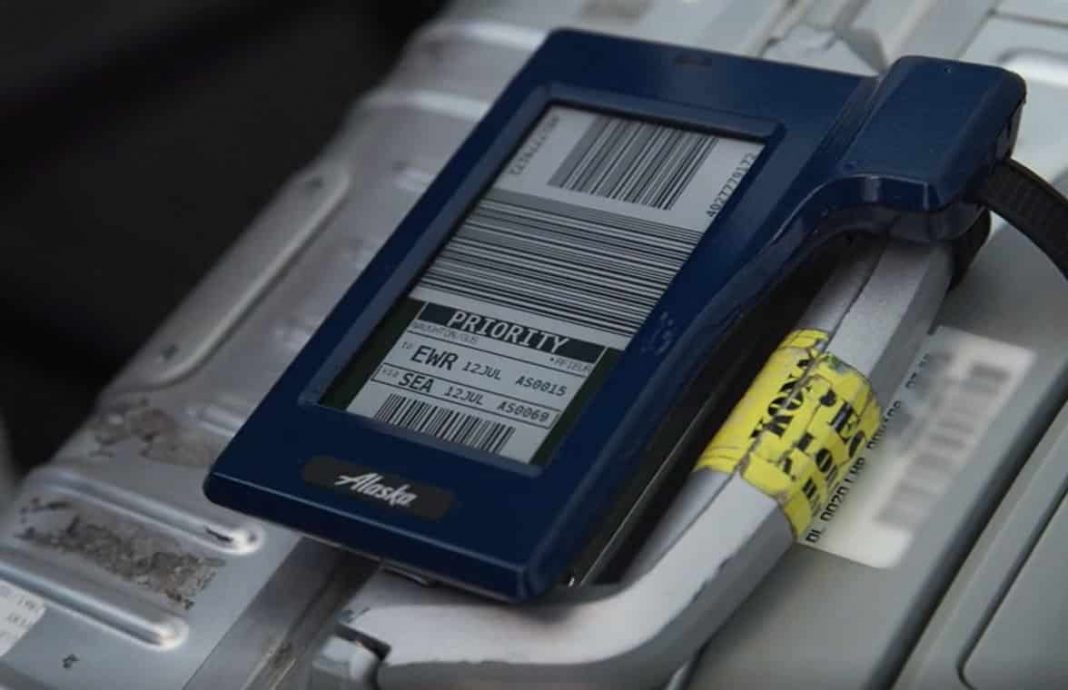Alaska Airlines plans to roll out electronic bag tags later this year to allow certain customers to bypass printing luggage tags at the airport. Travelers will activate the devices through the airline’s mobile app from anywhere – their home, office or car – up to 24-hours before their flight.
Charu Jain, the airline’s senior vice president of merchandising and innovation, says the technology enables fliers “to tag their own bags in just seconds and makes the entire check-in process almost all off-airport.
“Not only will our electronic bag tags allow our guests to quickly drop off their luggage after they arrive at the airport,” Jain says, “the devices will also give our employees the opportunity to spend more one-on-one time with guests who ask for assistance and reduce lines at our lobbies.”
Alaska Airlines says it is using the San Jose International Airport as a testbed for its latest technologies, including kiosk-less lobbies, biometric boarding and the electronic bag tag program. The airline expects the devices to reduce time spent dropping off checked luggage by nearly 40%.
Rollout of electronic bag tags will happen in several phases. In the first phase, Alaska Airlines’ 2,500 frequent fliers will use the electronic bag tags later this year. Mileage Plan members will have the option to purchase the devices early next year.
Fliers activate the electronic bag tag by touching their mobile phone to the tag, which has an antenna that powers and reads the information transmitted from the phone. The tag’s screen then displays the traveler’s flight information.
The devices are equipped with durable screens that have been tested to withstand being run over by a luggage cart and are attached to luggage using an industrial-strength plastic zip tie, according to Alaska Airlines.
The airline is partnering with Dutch company BAGTAG.
“We are very proud to announce the first American carrier adopting our EBT (electronic bag tag) solutions,” says BAGTAG managing director Jasper Quak. “Alaska Airlines’ relentless efforts to make their passenger journey a true 21st-century experience makes us very confident in a successful rollout among their guests.”
Founded in 2014, the company launched its hardware solution in 2018 with the Lufthansa Group.
Alaska Airlines’ electronic bag tag program follows the March launch of its self-bag drop system at the San Jose airport. A report by Reportlinker.com, which looks ahead through 2027, finds that airport operators and airlines plan to install systems to make baggage handling and tracking more efficient.
The report says that baggage mishandling has been one of the major challenges facing aviation authorities over the years, further fueled by pandemic-related demand for contactless and self-service technologies. As a result, airports are installing self-service bag drops, radio-frequency-identification baggage handling and tracking solutions and automated baggage handling systems, the report finds.


